Read the boundary 2 special issue “Charles Bernstein: The Poetry of Idiomatic Insistences” (volume 48, issue 4), which features Runa Bandyopadhya’s essay “Pataquericalism: Quantum Coherence between the East and West,” among others.
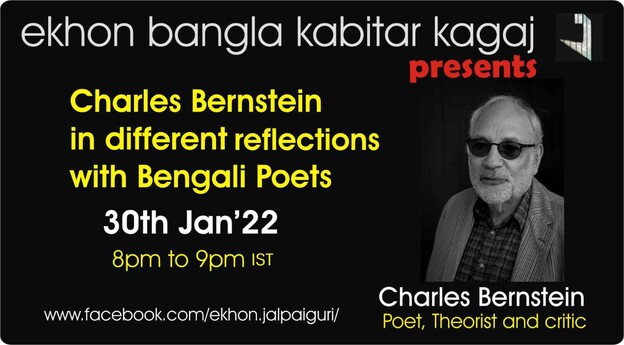
Read the boundary 2 special issue “Charles Bernstein: The Poetry of Idiomatic Insistences” (volume 48, issue 4), which features Runa Bandyopadhya’s essay “Pataquericalism: Quantum Coherence between the East and West,” among others.
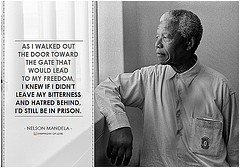
Editor’s Note
from Paul Bové
_
Nelson Mandela died on December 5, 2013. Tony Bogues, a member of the boundary 2 Collective, was in South Africa, watching the endless coverage of the news and of Mandela’s life. Bogues had met Mandela during his time with the Jamaican government of Michael Manley, and he has spent considerable time working in South Africa, especially in Cape Town, on questions of freedom, archives, African and African Diaspora intellectual history, and political thought.
At least one generation of intellectuals had stood against apartheid and reflected on Mandela as a political figure of freedom and liberation. Mandela never produced anything equivalent to the political writings of a Gramsci, Fanon, or Césaire. Because of the media and the global support for the struggles he led, Mandela acquired a resonance with effects across the globe. His career, with all its changes, posed challenges for thinking about politics.
It seemed right that boundary 2 should take notice of Mandela and his influence. We decided to gather responses to Mandela as a political figure. b2 issued a call for very brief papers from several spots on the globe and from different generations. Our contributors have given us reason to feel this attempt was a success.
At least one generation of intellectuals had stood against apartheid and reflected on Mandela as a political figure of freedom and liberation. Mandela never produced anything equivalent to the political writings of a Gramsci, Fanon, or Césaire. Because of the media and the global support for the struggles he led, Mandela acquired a resonance with effects across the globe. His career, with all its changes, posed challenges for thinking about politics.
Editor’s Note from Paul Bové
Preface by Anthony Bogues
Mbu ya Ũrambu: Mbaara ya Cuito Cuanavale / The Cry of Hypocrisy: The Battle of Cuito Cuanavale by Ngũgĩ wa Thiong’o
Discomforts by Hortense Spillers
The Mandela Enigma by Wlad Godzich
Mandela, Charisma, and Compromise by Joe Cleary
Nelson Mandela on Nightline; or, How Palestine Matters by Colin Dayan
Or, The Whale by Jim Merod
Malaysian Mandela by Masturah Alatas
Mandela, Tunisia, and I by Mohamed-Salah Omri
Nelson Mandela by Ruth Y. Y. Hung
Mandela Memories: An African Prometheus by Ngũgĩ wa Thiong’o
Nelson Mandela: Decolonization, Apartheid, and the Politics of Moral Force by Anthony Bogues
Mandela’s Wholeness, Perhaps Infinite by Dawn Lundy Martin
[untitled] by Gayatri Chakravorty Spivak
Mandela’s Gift by Sobia Saleem
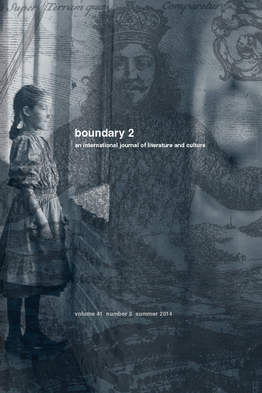
In Memoriam of Stuart McPhail Hall
Each crisis provides an opportunity to shift the direction of popular thinking instead of simply mirroring the right’s populist touch or pursuing short-term opportunism. The left…must adopt a more courageous, innovative, “educative” and path-breaking strategic approach if they are to gain ground.
–Stuart Hall and Alan O’Shea, “Common-sense Neoliberalism”
Intervention / Mandela’s Reflections
Editor’s Note from Paul Bové:
…We decided to gather responses to Mandela as a political figure. b2 issued a call for very brief papers from several spots on the globe and from different generations. Our contributors have given us reason to feel this attempt was a success.
Preface by Anthony Bogues
Mbu ya Ũrambu: Mbaara ya Cuito Cuanavale / The Cry of Hypocrisy: The Battle of Cuito Cuanavale by Ngũgĩ wa Thiong’o
Discomforts by Hortense Spillers
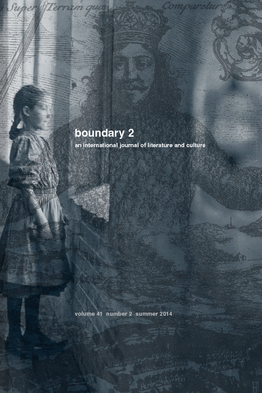
The Mandela Enigma by Wlad Godzich
Mandela, Charisma, and Compromise by Joe Cleary
Nelson Mandela on Nightline; or, How Palestine Matters by Colin Dayan
Or, The Whale by Jim Merod
Malaysian Mandela by Masturah Alatas
Mandela, Tunisia, and I by Mohamed-Salah Omri
Nelson Mandela by Ruth Y. Y. Hung
Mandela Memories: An African Prometheus by Ngũgĩ wa Thiong’o
Nelson Mandela: Decolonization, Apartheid, and the Politics of Moral Force by Anthony Bogues
Mandela’s Wholeness, Perhaps Infinite by Dawn Lundy Martin
[untitled] by Gayatri Chakravorty Spivak
Mandela’s Gift by Sobia Saleem
_____
Three Models of Emergency Politics by Bonnie Honig
Democracy: An Unfinished Project by Susan Buck-Morss
The Future of Reading? Memories and Thoughts toward a Genealogical Approach by Hans Ulrich Gumbrecht
_____
b2 Interview
History Unabridged: An Interview with Stefan Collini with Jeffrey J. Williams
_____
Articles
King Kong in America by Arif Dirlik
How Global Capitalism Transforms Deng Xiaoping by Ruth Y. Y. Hung
Is Dasein People? Heidegger According to Haugeland by Taylor Carman
It’s Only the End of the World by Ben Conisbee Baer
Passive Aggressive: Scalia and Garner on Interpretation by Andrew Koppelman

Professor Nergis Erturk of Penn State (nue5@psu.edu) has joined the editorial collective of boundary 2. Professor Erturk will develop articles, reviews, and special issues in her areas of interest, namely, (post)colonial histories and theories of language and writing practices; Marxism, communism, and translation (including questions concerning Soviet Orientalisms, language politics of the Comintern, and literary communism); critical regionalism in west and central Asia; Turkey and contemporary cultures of resistance. With Özge Serin (Columbia, Anthropology), Nergis is currently editing a special issue on “Marxism, Communism, and Translation.”
With all that’s happening now to the European Project, nothing will be more timely and important than this special issue. Wlad Godzich and Anita Starosta have been working at it for some time and it’s all coming together now. So, watch this space for news of its availability. And please offer any thoughts you might have. And share, too.
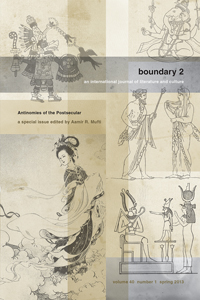

A new and controversial special issue, Volume 40, Number 1, Spring 2013, has just appeared . . . .
In his Introduction to b2‘s special issue, Antinomies of the Postsecular, Aamir Mufti explains his and his colleague’s desire to investigate the surrounding philosophy on this modern “return to religion.”